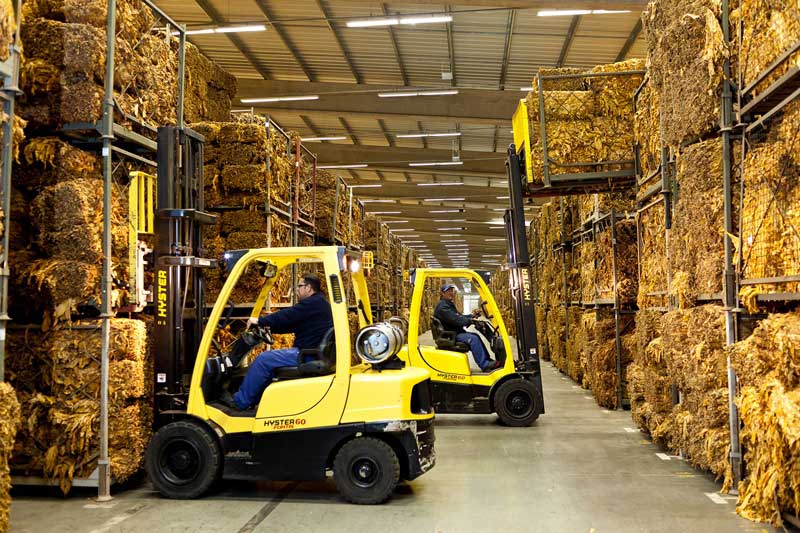
Pyxus International reported sales and other operating revenues of $1.64 billion, up 23.1 percent from the prior fiscal year. Gross profit as a percent of sales was 13.8 percent, compared with 12.1 percent in 2021. The net loss attributable to Pyxus International was $82.1 million, which improved 30.2 percent from the prior fiscal year despite $32.2 million of goodwill impairment in fiscal 2022.
The results presented for the prior fiscal year period reflect the periods prior to and subsequent to the company’s emergence from Chapter 11 proceedings.
Pyxus International attributed the increase in sales and other revenues to a 16.8 percent increase in kilo volume and a 7.5 percent increase in average price per kilo. The 16.8 percent increase in kilo volume was driven by larger crop sizes in Africa and increased market share in Africa, Asia and South America partially due to customers reversing their vertical integration in certain markets.
In addition, 21.1 million kilos or $178.3 million of shipments were delayed by the Covid-19 pandemic and customer shipping instructions from the prior year into the current year and was offset by similar volume of shipments expected in the current that has been delayed into next year in Africa, North America and South America.
The 7.5 percent increase in average price per kilo was primarily due to product mix having a higher concentration of lamina in Asia, Africa, and Europe, as well as customer and grade mix in Africa and North America.

Our employees worked diligently to successfully increase volumes and revenue compared to the prior year while continuing to navigate global challenges.
Pieter Sikkel, president and CEO, Pyxus International
“We are proud of the progress made by the business during fiscal year 2022,” said Pyxus’ President and CEO Pieter Sikkel, in a statement. “Our employees worked diligently to successfully increase volumes and revenue compared to the prior year while continuing to navigate global challenges, which largely stem from the ongoing impacts of Covid-19 and the unfortunate events in Ukraine.
“We continued to expand our customer relationships as customers sought solutions to reduce supply chain complexities and improve operational efficiencies. Expansion of these relationships, partially attributable to our environmental, social, and governance framework that we publicly announced in December 2021, increased our market share in Africa, Asia, and South America and contributed to a 16.8 percent increase in kilo volume compared to last year.
“Our efforts in fiscal 2022 to execute on our strategy to increase financing sources and working capital lines around the globe resulted in a new asset-based lending credit facility with PNC Bank in February 2022, which provides the company with an extended maturity date, reduced costs and increased potential borrowing availability. In addition, in June 2022, we entered into an agreement to amend our delayed draw term loan facility, which provides the company with an extended maturity date, reduced costs, and increased financial flexibility.
“In January 2022, we completed the exit of our cash-flow-negative cannabinoid operations. Our restructuring activities generated savings in SG&A, which contributed to a $55.9 million decrease in expense compared to last year. As a result, our SG&A expense has normalized and is consistent with levels prior to our investments to develop those businesses.
“For the full year, we expect fiscal 2023 sales to be between $1.75 billion and $1.95 billion and adjusted EBITDA to be between $130 million and $160 million as we anticipate increased demand for our leaf products, the continuation of Covid-related logistical challenges, and cost and price increases due to inflation.
“Maintaining farmer livelihood and a supply chain of responsibly sourced, sustainable, and traceable products remains a top priority as we engage with customers about the impact of inflation on the cost and price of tobacco going forward. Additionally, we have taken proactive measures to secure inputs for the next year, such as fertilizer and fuel, allowing us to remain focused on delivering stakeholder value as we work to grow a better world.”










